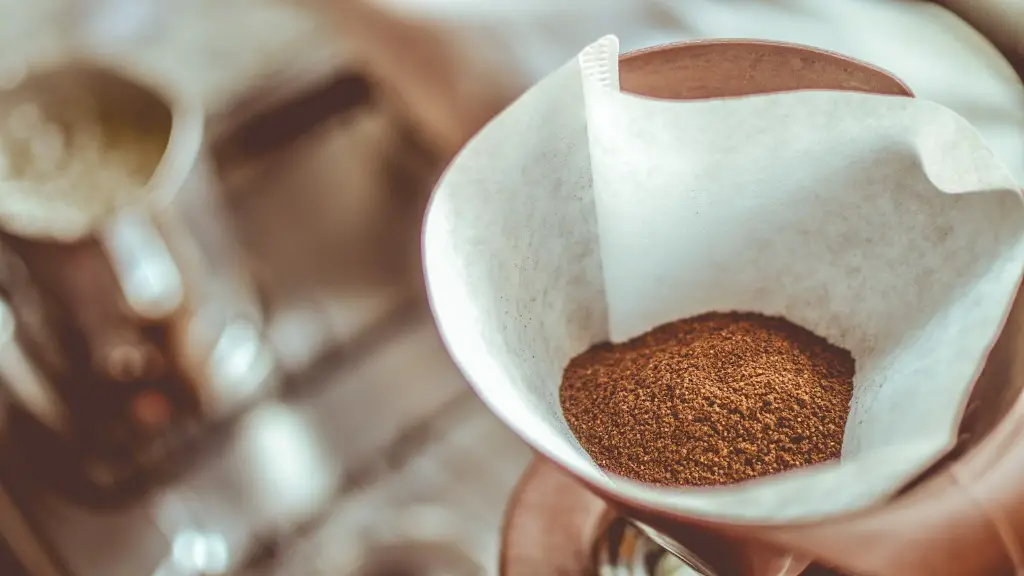Erectile dysfunction is a medical condition that is estimated to affect to up 55% of men aged between 40 and 70, according to the American Urological Association. It is a worrisome problem due to potential mental and psychological side-effects. It is also known that caffeine has a stimulating effect on the human body, leading to increased energy and heightened senses. But is caffeine helpful in treating erectile dysfunction? This article aims to uncover the answer to this important question.
What is erectile dysfunction?
Erectile dysfunction occurs when a man is unable to get or keep an erection firm enough to have vaginal sexual intercourse. It can be caused by a number of factors including emotional, physical and psychological issues. The most common causes are diabetes, high blood pressure and high cholesterol, all of which can cause narrowing of the small blood vessels and affect blood flow to the penis.
The role of caffeine
Caffeine is widely known for providing a temporary boost to physical and mental alertness. It is widely consumed as a beverage, but also exists as an ingredient in some medicines. Caffeine has also been studied for its potential to help with erectile dysfunction, and some studies have shown that drinking caffeine can help men become more aroused and achieve an erection quicker.
For example, one study conducted in 2016 by a team of researchers at the University of Texas found that consuming coffee with caffeine can improve blood flow to the genitals, leading to faster and more consistent erections. The study also found that drinking coffee with caffeine can reduce the likelihood of developing erectile dysfunction as it can improve circulation to the genital area.
The risks of high caffeine intake
While caffeine can help with blood flow and therefore improve erectile dysfunction, there are some risks associated with drinking too much caffeine. Caffeine can cause a number of side effects including increased heart rate, insomnia, restlessness, and irritability. It can also interact with certain medications and lead to dangerous side effects. Therefore, it is important to drink caffeine in moderation and not to exceed recommended amounts.
Moreover, some experts caution against drinking too much coffee as it can lead to dehydration. This can cause a decrease in blood pressure which can further contribute to erectile dysfunction. Therefore, it is important to drink a sufficient amount of water throughout the day to keep hydrated and maintain healthy blood pressure levels.
The link between caffeine and testosterone
Caffeine has also been studied for its potential link to testosterone levels. While there are some studies that suggest that caffeine can increase testosterone levels, most studies have not found a link between caffeine consumption and testosterone production. In fact, some experts caution against drinking too much coffee as it can reduce blood levels of testosterone, thus leading to decreased libido and difficulty achieving an erection.
This is also supported by a 2017 study conducted by a team of researchers at the University of Sao Paulo which found that high caffeine consumption can lead to decreased testosterone levels. The study also found that the decrease in testosterone was more pronounced in men who already had low testosterone levels.
The bottom line
Drinking caffeine can offer some potential benefits when it comes to erectile dysfunction, however it is important to be mindful of the risks associated with excessive consumption. While there is some evidence that suggests that moderate amounts of caffeine may be beneficial in treating erectile dysfunction, other studies have not found a link between caffeine consumption and improved erections. Therefore, it is best to consult a doctor before increasing your caffeine intake as a means of treating erectile dysfunction.
Herbal remedies
There is a growing interest in natural remedies for erectile dysfunction, and some herbal remedies are said to help with this condition. Herbal remedies like ginkgo biloba, yohimbe and maca are particularly popular for treating erectile dysfunction. It is important to note, however, that the efficacy of these herbal remedies has not been extensively researched and the effects of long-term use are unknown.
Moreover, some of these herbal remedies can also be dangerous when used in large doses or when combined with certain medications. Therefore, it is best to talk to a healthcare professional before trying any herbal remedies as a means of treating erectile dysfunction.
Lifestyle changes
Lifestyle changes, such as exercising and eating a healthy diet, can also help reduce the risk of erectile dysfunction. Exercise helps to improve circulation, while a healthy diet can help to reduce cholesterol and blood pressure levels. In addition, avoiding nicotine, reducing alcohol consumption and managing stress can also improve overall health and may also be helpful in treating erectile dysfunction.
It is important to note, however, that these lifestyle changes take time and require dedication and commitment. While these changes may improve overall health and may even help to reduce the risk of erectile dysfunction, it is best to talk to a doctor before making any changes to lifestyle to ensure that they are safe and effective.
Prescription medications
Prescription medications, such as sildenafil and tadalafil, are commonly used to treat erectile dysfunction as they can help improve blood flow to the penis. However, these medications can cause a number of side effects, including headaches, nausea and changes in blood pressure. Moreover, these medications can also interact with other medications and can have potentially dangerous side effects. Therefore, it is important to consult a doctor before taking any prescription medications as a means of treating erectile dysfunction.
Effective treatment
Ultimately, the best way to treat erectile dysfunction is to talk to a healthcare professional. A doctor can assess the underlying causes and provide advice on lifestyle changes that can help to improve the condition. In some cases, prescription medications or herbal remedies may be recommended as a means of treating the condition. It is important to seek professional help to ensure that the treatment is both safe and effective.



